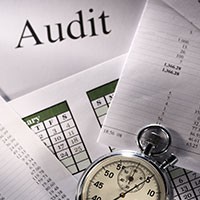Tax Audits: Both the CRA and Taxpayers Have Rights

What are the taxpayer’s rights, and what are the rights of CRA during a tax audit? These answers can be found in the Income Tax Act S. 231.1. While surprise visits are unusual - a letter requesting certain files for inspection is more routine - an authorized person employed by CRA may actually visit, unannounced "at all reasonable times, for any purpose related to the administration or enforcement of this Act”. Here is what they can and cannot do:
a) Inspect, audit or examine the books and records of a taxpayer and any document of the taxpayer or of any other person that relates to or may relate to the information that is or should be in the books…
b) Examine property in an inventory of a taxpayer…or any other person, an examination of which may assist the authorized person in determining the accuracy of the inventory…"
Under these powers, the CRA is also authorized to enter into any premises where any business is carried on, property is kept or any other activities are undertaken in connection with the  business or property, or books or records, and to require that the owner or manager provide reasonable assistance and answer all proper questions. And, you have little choice in the matter: compliance with a tax audit is required under S. 231.5(2) and 231.7.
business or property, or books or records, and to require that the owner or manager provide reasonable assistance and answer all proper questions. And, you have little choice in the matter: compliance with a tax audit is required under S. 231.5(2) and 231.7.
It is important to point out, however, that the taxpayer does have certain rights including the right to see a written request for information and a list of issues to be answered. In addition, if the property is a dwelling, the person authorized by CRA may not enter it without the consent of the occupant unless a search warrant is produced. This is where it is really important to have a dispassionate and professional tax specialist on your side to help manage the audit process for you.
The audit powers referred to above cannot be used, for example, if the inquiry is the subject of a criminal investigation, based on the outcomes of two Supreme Court Cases: Jarvis, 2002 SCC 73 and Ling, 2002 SCC 74. Criteria were established in those cases to determine whether the auditor had crossed the line in laying charges. It must be determined, for example, whether the auditor was acting as an agent in gathering information for a criminal investigation.
Fishing expeditions. It is also important to note that under S. 231.2(2), third parties approached by CRA are not required to provide information or documents related to other unnamed persons or third parties unless authorization has been given by a judge to obtain this information. Fishing expeditions, in other words, are not allowed.
Further, a taxpayer who is having affairs investigated by audit is entitled to be present and to be represented by counsel throughout the inquiry under S. 231.4(6), unless it is ordered otherwise. CRA would have to show, for example, that such presence would jeopardize the process. Likewise, those who act as witnesses, providing evidence in an inquiry, may be represented by counsel. Finally, the taxpayer also has the right to make copies of everything that may be seized by CRA, including electronic backups, as per S. 231.5(1). But, most important: no matter how emotional the prospect of an audit is, no taxpayer is allowed to physically or otherwise interfere with, hinder or molest an official of CRA, under S. 231.5(2).
Excerpted from EverGreen Explanatory Notes and the Knowledge Bureau Education Days: CE Summits.
Additional educational resources: There’s still time to register for the Spring CE Summits in Toronto, taking place on June 4. Register online or call 1.866.953.4769 today.
COPYRIGHT OWNED BY KNOWLEDGE BUREAU INC., 2019.
UNAUTHORIZED REPRODUCTION, IN WHOLE OR IN PART, IS PROHIBITED.